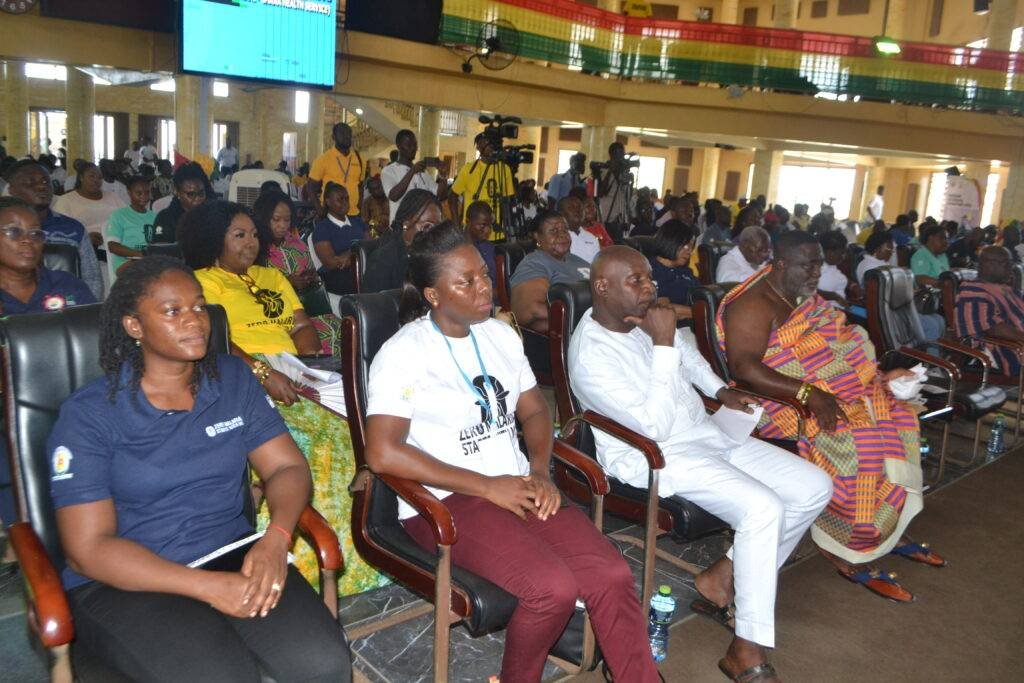ARTICLE AD
As part of Ghana’s renewed drive to eliminate malaria by 2028, a mass drug administration (MDA) of anti-malaria drugs is expected to be rolled out in selected districts in the Greater Accra Region from next month.
The intervention, to be piloted in the Krowor District of the region, is expected to help break disease transmission and reduce malaria deaths in the country.

Eventually, 20 other districts earmarked for malaria elimination would be roped into the intervention as part of strategies under the new National Malaria Elimination Plan (2024-2028) which seeks to reduce malaria death and case incidences by 90 and 50 per cent respectively by 2028.
At the commemoration of World Malaria Day in Accra yesterday, the Deputy Programme Manager of the Malaria Control Programme, Ghana Health Service (GHS), Dr Nana Yaw Peprah, said key achievements made in the malaria fight so far included reduced related mortalities from 333 in 2019 to 146 in 2023.
While under-five deaths have reduced by 50 per cent from 2019 to 2023, testing for malaria among the population has increased by five per cent- from 94 per cent in 2019 to 98 per cent in 2023.
However, with malaria admissions across all ages seeing marginal increase from 394,027 in 2019 to 445,079 in 2023, Dr Peprah called for multi-stakeholder support in helping eliminate malaria.
The Director-General of the GHS, Dr Patrick Kuma-Aboagye, speaking on the local theme, “Health Equity, the cornerstone for malaria elimination in Ghana,” said the new drive for malaria elimination was key to sustaining livelihoods and promoting socio-economic growth.
He explained that the 21 districts for malaria elimination were selected because of their low malaria burden level with “parasite prevalence less than one per cent and malaria incidence lesvs than 50 per 1000 population”.
Dr Kuma-Aboagye outlined other interventions the Service was adopting in the elimination phase, including post-discharge malaria chemoprevention and intermittent preventive treatment for school children as well as scaling up malaria vaccination.
KINGSLEY E.HOPE reports from Edubiase that malaria-related deaths in Ghana have dropped from 428 in 2018 to 155 in 2022.
Though 2023 mortality figures are not out, it is expected that the rate would definitely be less than the previous year, says Mrs Mavis Nana Yaa Kyei, Social and Gender Superintendent of the AngloGold Ashanti, Obuasi mine.
She was speaking at a durbar of chiefs and people of New Edubiase in the Ashanti Region on Wednesday to mark this year’s World Malaria Day.
It was orgnaised by AngloGold Ashanti, Obuasi mine, in partnership with the Otumfuo Health Foundation, AGA Malaria Control Programme, AGA Health Foundation, the Adansi South District Assembly and its Health Directorate, as well as the Edubaise Traditional Council.
According to Mrs Yaa Kyei, in 2022, the World Health Organisation reported an estimated 249 million malaria cases worldwide, of which 608,000 cases resulted in fatalities.
She said Africa accounted for 95 per cent (580,000) of those deaths, with children under five years accounting for about 80 per cent of all malaria-related deaths in Africa.
BY ABIGAIL ANNOH

 6 months ago
49
6 months ago
49 

